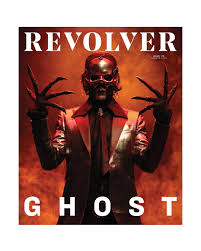The Gone: An Insight into Its Cultural Relevance

Introduction
The term ‘The Gone’ has recently gained traction in various contexts, ranging from literature and media to discussions on social issues. Its significance reflects contemporary sentiments about loss, absence, and the search for identity in an increasingly fragmented world. Understanding the cultural implications of ‘The Gone’ is vital, as it touches upon shared human experiences that resonate across a broad spectrum.
The Emergence of ‘The Gone’
In literature and popular media, ‘The Gone’ often represents a sense of disconnection or loss. From novels that explore themes of grief to films illustrating the effects of societal upheaval, this motif captures the essence of stories where characters face the void left by what is no longer present. Recent works, including novels such as ‘The Gone World’ by Tom Sweterlitsch and television series like ‘The Leftovers,’ have spotlighted this growing theme, appealing to audiences who find solace in narratives that echo their own sense of absence.
Social Relevance
The cultural relevance of ‘The Gone’ extends into real-world issues. It resonates with individuals grappling with the effects of the COVID-19 pandemic, during which many have experienced profound loss—whether it be the death of loved ones, loss of employment, or the disappearance of familiar social structures. Research indicates that discussions around loss and grief have surged in public consciousness, highlighting a collective emotion that many can relate to. Creators, artists, and authors are increasingly addressing these feelings, giving voice to a widespread cultural mood that is difficult to articulate.
The Future of ‘The Gone’
As society continues to evolve, the concept of ‘The Gone’ is likely to play an even more significant role in cultural dialogues. The ongoing challenges posed by climate change, social inequality, and political unrest may further fuel narratives surrounding loss and absence. This trend could lead to new artistic expressions and discussions that explore resilience in the face of adversity, reflecting how individuals and communities navigate their emotions related to what has been lost.
Conclusion
‘The Gone’ is not merely a trend; it represents a profound understanding of human experience in a time of uncertainty. It encourages society to confront uncomfortable truths about absence and loss while fostering connections through shared narratives. As more creators engage with this theme, readers and audiences are likely to find a deeper resonance with their own experiences in the ongoing discourse surrounding ‘The Gone’.








